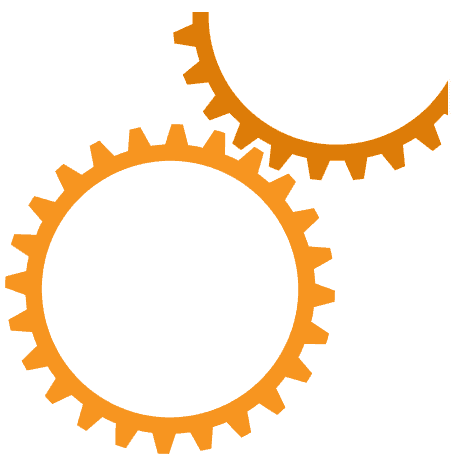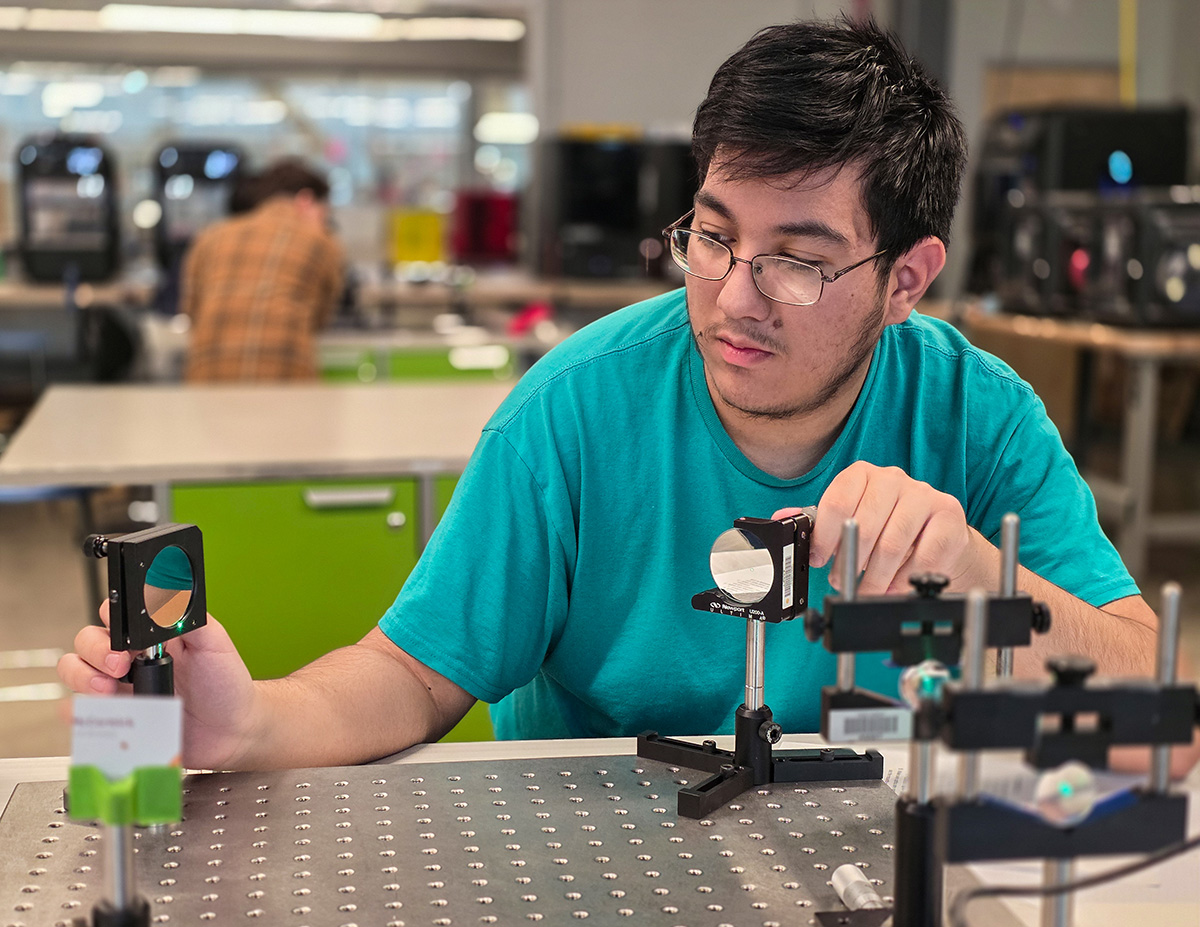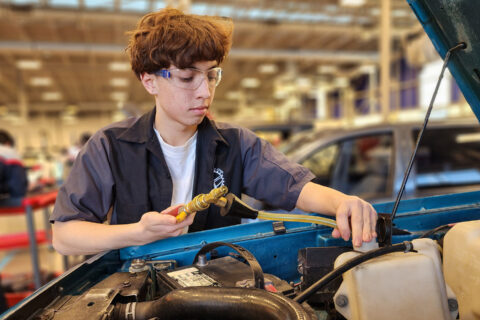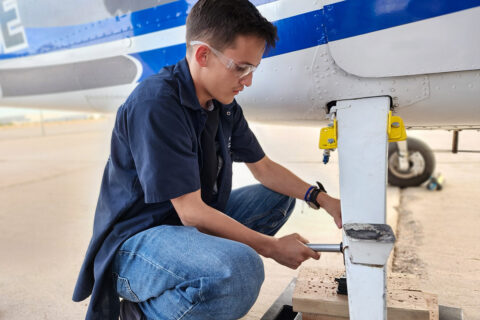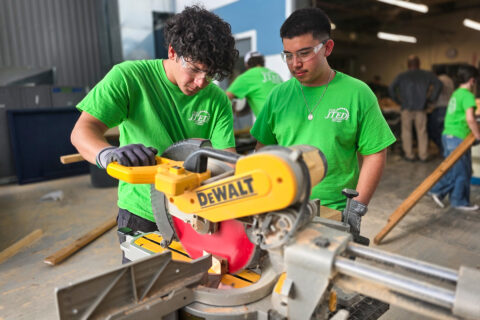Apply basic engineering principles and technical skills in a wide variety of projects (design, create, test). Instruction will be problem-based with a special focus on aerospace technology, design, alternative energy, and power systems. Additional topics include computer-aided design, electronics, manufacturing processes (3D printing, milling, etc.), mechanical drawing, robotics, and precision measurement.

Eligibility
- Year 1:
- Grades 10-11
- Year 2:
- Successful completion of Year 1
- Year 3:
- Successful completion of Year 2
Number of Years to Complete this Program
- 2 years to complete
- Optional third year offered
Things to Consider
- You must have the ability to collaborate and work with a team.
- You must have the ability to work independently.
- Self initiative and problem solving skills are essential.
- Strong critical thinking and creative skills are necessary.
- You must have the ability to spend prolonged periods of time in front of a computer screen.
- You must desire to work hands-on with various shop equipment and hand tools.
Direct Employment
- Engineering Technician
- Manufacturing Equipment Technician
- CAD Technician
Jobs Available After Additional or Advanced Training
- Mechanical Engineer
- Engineering Technologist
- Electrical Engineer
- Aerospace Engineer
- Civil Engineer
- Engineer in other fields
Locations
JTED @ The Bridges
3300 S. Park Ave.
Schedule Availability
- Year 1:
- Mondays & Wednesdays 4 to 6:30 p.m.
- Year 2 & 3:
- Tuesdays & Thursdays 4 to 6:30 p.m.
- Monday through Friday daytime schedule
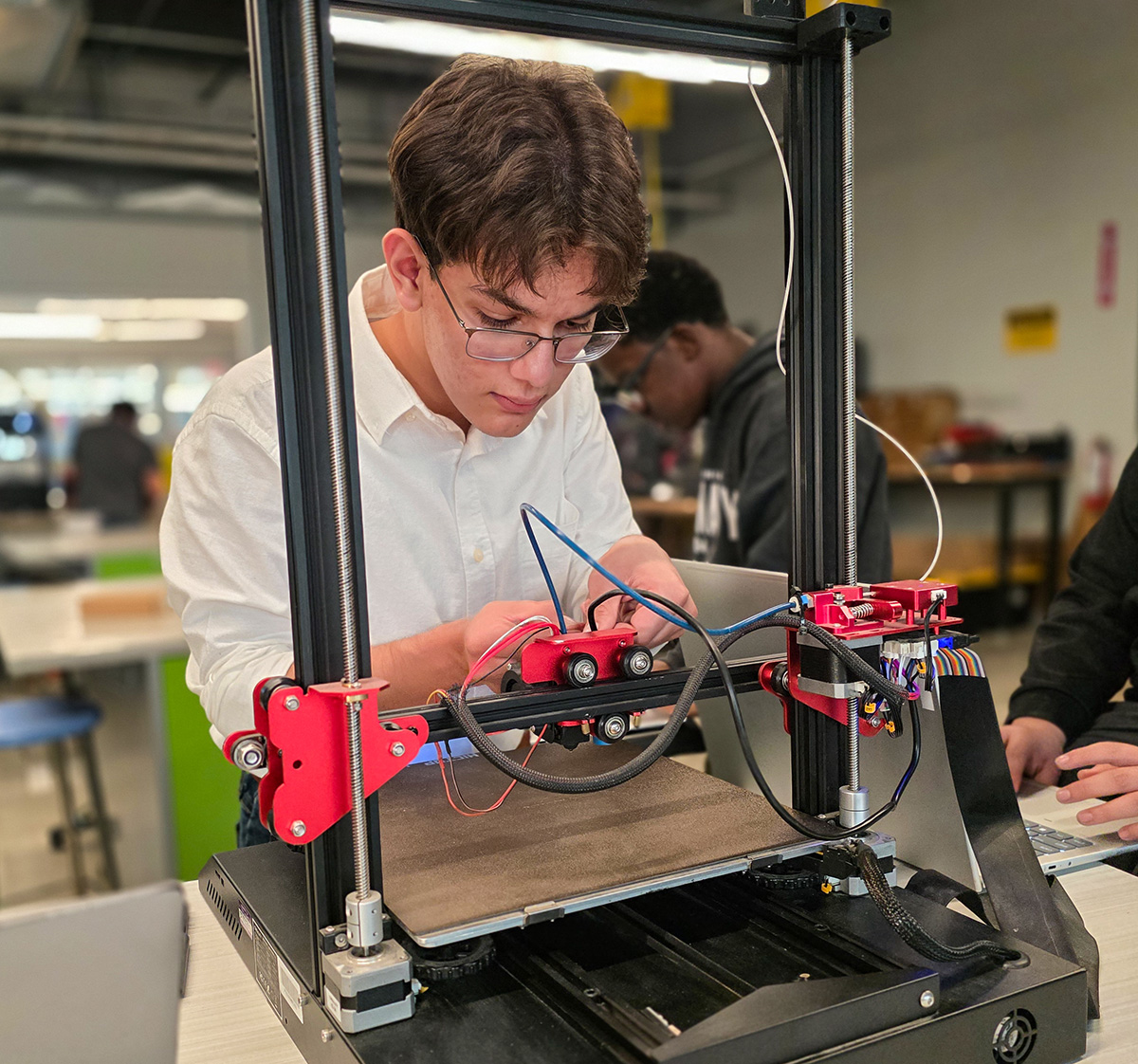
Program Completion/Sequence
Year 1
Introduction to fields of engineering, experience with industry software programs, professional skills, communication, and technical writing. Introduction to lab equipment like CNC Machines, 3D Printers, and wind tunnels. Work on small design projects such as designing/building prototypes and building bridges using various softwares such as Fusion 360
Year 2
Apply fundamental scientific laws and principles relevant to engineering technology, such as electronics and fluid dynamic theory. Gain more experience with existing lab material (wind tunnel, electronic kits) and learn how to perform new skills such as soldering and using Microsoft products and other software (Excel, etc.). Apply engineering technology and tools like computer-aided design, electronics, hydraulics, mechanical drawing, and robotics.
Year 3
Develop a project management plan to implement a solution to a problem. Strong focus on gaining certifications and preparing for industry opportunities. Complete larger more independent projects going through the entire engineering process. Explore other software such as Microsoft Office and Solidworks. Opportunity for dual enrollment with the University of Arizona (ENGR102).
Certification
- Year 1:
- Autodesk Certified User (ACU) – Fusion 360 CAD
- Year 2:
- Multimeter
- NC3 Precision Measuring
- Year 3:
- Microsoft Office Specialist (MOS)
*Certifications available to students are dependent on teacher credentials*
Work Based Learning Requirements
Students who complete one or more years of the program and meet the eligibility requirements may have the opportunity to participate in our Internship Program.
Credits
1/year
Instructors
- Jeremy Bishop

More Information
Uniform
- JTED program t-shirt (evening programs)
Beneficial Classes to Take in High School
Academic Classes
- Math
- Science (Physics)
CTE Classes
- Construction
- Electronic Technologies
- Automation/Robotics
- Air Transportation
- Precision Manufacturing
- Precision Machining
- Computer Aided Design (CAD)
